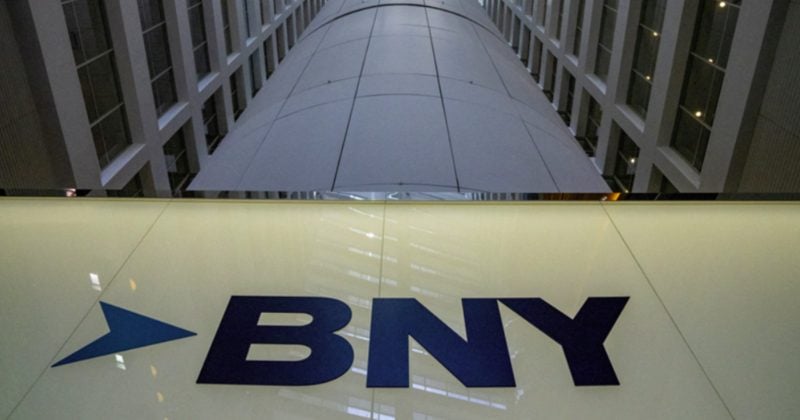Remember when you couldn’t find toilet paper, or the price of eggs soared? While many factors contributed, one often-overlooked element played a key role. The financial stability of the companies that produce and deliver the goods we rely on. When you hear headlines about “supply chain disruptions,” “inflation,” or “product shortages,” they’re not just abstract economic terms. They directly affect your grocery bill, shopping, and even your ability to get that new appliance you’ve been eyeing.
At Slavic401k, we’re more than just a retirement partner. We’re here to help you navigate today’s economic realities of today and tomorrow. What if we told you there’s a hidden financial system powering much of what happens behind the scenes? One with a fascinating history that can actually help you build a more resilient and sustainable financial future? That system is called Supply Chain Finance—and it’s more relevant to your life than you might think.
The Unseen Hand: What is Supply Chain Finance?
Imagine every product you buy – from your morning coffee to your smartphone – making a long, complex journey. This journey involves countless businesses: farmers, manufacturers, transporters, distributors, and retailers. At each stop, money changes hands.
Supply Chain Finance (SCF) refers to the financial solutions that help businesses manage flow of money and goods more efficiently. Think of it as the financial lubricant that keeps the complex machinery of global commerce running smoothly.
Here’s the core idea:
The Problem: Large buyers (like major retailers) often demand long payment terms from their suppliers (e.g., “we’ll pay you in 90 days”). While this helps the buyer’s cash flow, it can leave smaller suppliers struggling to pay their own bills, employees, or buy raw materials during that long waiting period.
The SCF Solution: A third party (often a bank or a specialized finance company) steps in. They pay the supplier early (minus a small fee), and then the large buyer pays the bank later. This ensures the supplier has steady cash flow, and the buyer maintains their favorable payment terms.
In essence, SCF helps connect the dots between cash, goods, and information across the entire supply chain. This ensures that businesses have the liquidity they need to keep products moving.
Why SCF is So Relevant Today
SCF gained prominence with the rise of globalized supply chains. As companies sourced materials from across continents and manufactured products in one region for sale in another, the payment cycles became longer and more complex. The 2008 financial crisis highlighted the fragility of these extended chains, as credit dried up and many suppliers struggled.
Recently the pandemic, geopolitical events, and climate-related disruptions have exposed the vulnerabilities of just-in-time global supply chains like never before. When a factory closes, a port gets jammed, or a truck driver is unavailable, the financial stress reverberates. The presence (or absence) of robust SCF mechanisms can make the difference between a minor delay and a major disruption. It impacts everything from product availability to your wallet.
How a Strained Supply Chain Impacts Your Life
When the financial gears of the supply chain seize up, you feel it directly:
Higher Prices: If suppliers struggle with cash flow, they might have to borrow at higher rates or build risk premiums into their prices. These costs are ultimately passed on to you.
Product Shortages: A factory might lack the funds to buy raw materials or pay workers. This leads to reduced production and empty shelves at your local store.
Reduced Quality: Financial stress can lead companies to cut corners on materials or processes. This impacts the durability and quality of the goods you buy.
Less Choice: Smaller, more innovative suppliers, who are often more financially vulnerable, might go out of business. This limits your options as a consumer.
Diversify for Resilience
Just as companies don’t rely on a single supplier, you shouldn’t rely on a single source of income or a single investment type. Diversify your investment portfolio beyond just one class with stocks, bonds, and other assets appropriate for your risk tolerance.
And as you build this diversified foundation, don’t overlook the power of an Individual Retirement Account (IRA). Unlike a standard bank account, an IRA is specifically designed to unlock compound growth, helping your money work harder for you and truly fuel your long-term wealth. It’s a key supplemental avenue for your savings, offering tax advantages and growth potential that a typical checking or savings account simply can’t match.
Fortify Against Fluctuations: Inflation-Proofing Your Portfolio
Beyond broad diversification, here are a few supply chain change considerations to look out for with your investment portfolio:
Consider Commodities and Real Assets: When supply chains get constrained (e.g., oil, agricultural products, metals), the prices of these raw materials often rise. Investing in commodity-focused ETFs (Exchange Traded Funds) or mutual funds, or even physical real estate, can provide a hedge against inflation driven by supply-side issues.
“Reshoring” and “Nearshoring” Beneficiaries: Keep an eye on companies that are bringing manufacturing and sourcing back closer to home (reshoring) or to nearby countries (nearshoring). These businesses are investing in more resilient, albeit potentially more expensive, supply chains. This shift could lead to long-term growth opportunities in domestic manufacturing and logistics companies.
Infrastructure and Logistics Investments: Stable supply chains rely on robust infrastructure (ports, railways, trucking, warehouses) and advanced logistics technology. Consider ETFs or mutual funds that focus on infrastructure development, transportation, or supply chain technology companies (e.g., those specializing in AI for logistics, warehouse automation, predictive analytics for shipping).
Dividend-Paying Stocks with Strong Supply Chains: Companies with well-managed, diversified supply chains are often more resilient during disruptions and can maintain consistent earnings. Look for stable, dividend-paying companies in essential sectors (utilities, certain consumer staples) that demonstrate strong operational resilience.
Your Everyday Financial Shield: Basic Prep for Supply Chain Realities
Understanding how global supply chains operate empowers you to better manage your own personal finances. Just as businesses need healthy cash flow to weather disruptions, so do you.
Here’s how to prepare and protect your financial well-being in an era of potential supply chain volatility:
“Price Check” Your Regulars: Pay attention to the prices of the groceries and household items you buy regularly. Notice when a favorite brand consistently goes up, or if the unit price on a bulk item changes. This awareness allows you to make informed decisions to switch to store brands, buy on sale, or seek alternatives before you’re caught off guard.
Bulk Buy (Strategically): For non-perishable items you regularly use (toilet paper, cleaning supplies, pantry staples like rice/pasta/canned goods), buying in bulk when on sale can lock in lower prices and create a personal buffer against shortages. Be mindful of storage space and only buy what you will use before it expires.
Build a Robust Emergency Fund: This is your personal “supply chain finance” buffer. Aim for at least 3-6 months of essential living expenses in an easily accessible, high-yield savings account. Emergency funds give you flexibility if prices rise, if your income stream becomes uncertain due to economic shifts, or if you need to make unexpected large purchases due to limited availability of goods
Anticipate Big Purchases: If you know you’ll need a new appliance, car, or furniture in the coming months, start looking early. Supply chain delays are often communicated by retailers. If you must make a large purchase, consider payment options that offer flexibility without high interest (e.g., 0% APR promotional periods if you can pay it off within the term). This buys you time if a product is delayed, ensuring you’re not paying interest on something you haven’t received.
Prioritize Value Beyond Price: In times of inflation or scarcity, simply chasing the lowest price might not always be the best strategy. Opt for products designed to last and be repaired, rather than disposable items. Investing in higher-quality items that last longer can be more cost-effective and sustainable in the long run.
Shop Local and Support Small Businesses: By supporting local businesses, you often shorten supply chains, reduce transportation costs and emissions, and contribute directly to your community’s financial health.
Medicines and Prescriptions: Pay close attention to prescription refill schedules. Don’t wait until the last minute. If possible and appropriate for your medical needs, consult your doctor about having a small emergency supply for vital medications.
Creative Repurposing: Before throwing something away, consider if it can serve a new purpose. An old tire can become a planter, a glass jar a storage container, old clothes can become cleaning rags.
Your Financial Resilience Starts Here
The world’s supply chains are complex, and they will undoubtedly face future challenges. But by understanding the financial forces at play, and by proactively strengthening your own personal financial “supply chain,” you can navigate these currents with greater confidence.
At Slavic401k, we’re dedicated to empowering you with the knowledge and tools to build lasting financial security. Let’s continue this journey together, building a future that’s resilient, stable, and sustainable for you and your loved ones.



























